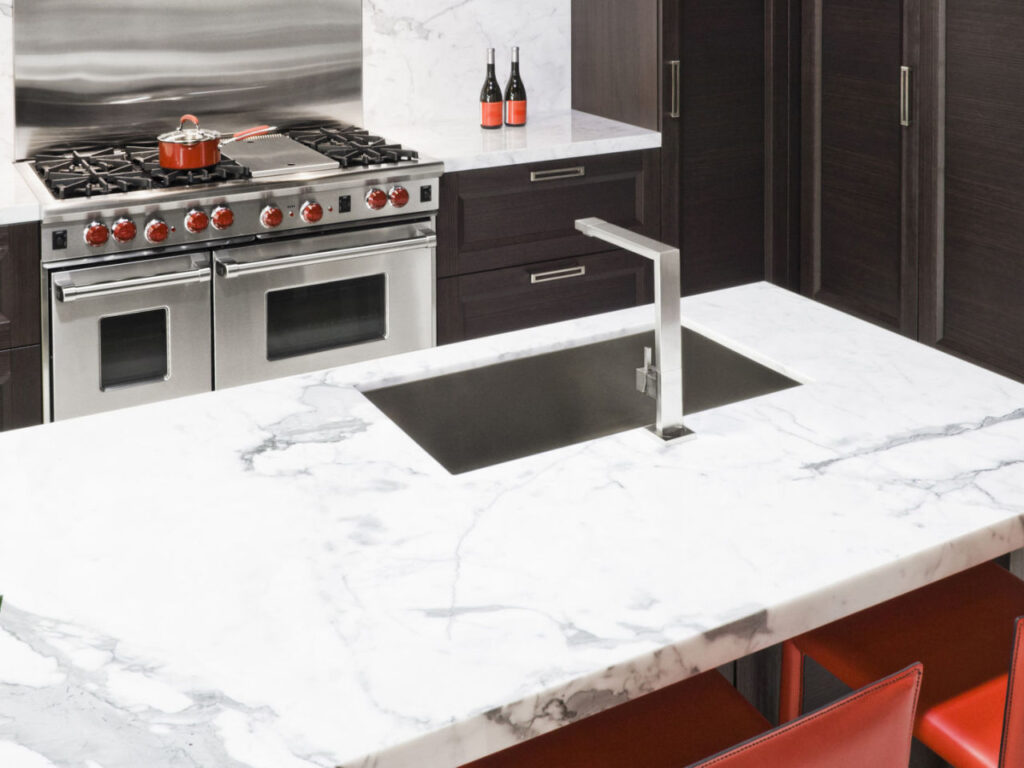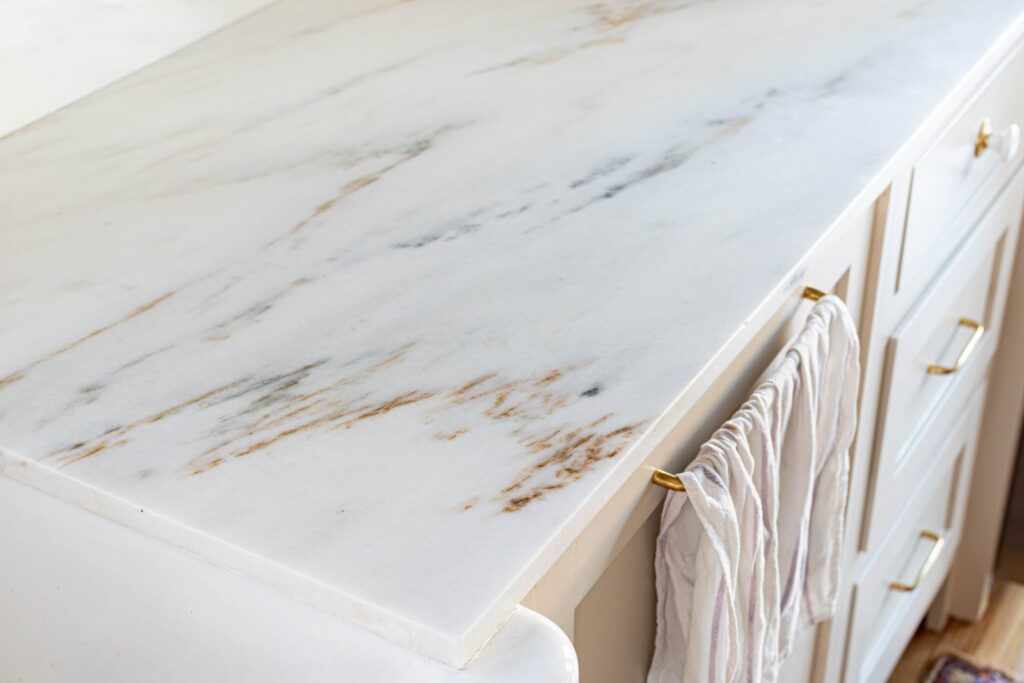Marble has long been revered for its timeless beauty and elegance. This natural stone, with its distinctive veining and range of hues, can transform an ordinary kitchen into a luxurious culinary haven. Marble countertops not only elevate the aesthetic appeal of a kitchen but also add a touch of sophistication that is hard to match. However, to maintain their pristine appearance and ensure longevity, marble countertops require specific care and maintenance routines. Here’s a comprehensive guide on how to preserve the elegance of your marble kitchen countertops.

Understanding the Nature of Marble Countertops
Before diving into care and maintenance, it’s essential to understand the nature of marble. Marble is a metamorphic rock formed from limestone subjected to intense heat and pressure over millions of years. This process gives marble its characteristic veining and variety of colors, from the classic white Carrara to the dramatic black Marquina. While marble is durable, it is also porous and relatively soft compared to other stones like granite. This means it can be susceptible to staining, scratching, and etching from acidic substances.
Daily Cleaning Routine
Maintaining the beauty of marble countertops begins with a simple, daily cleaning routine. Use a soft cloth or sponge and a pH-neutral cleaner specifically designed for stone surfaces. Avoid using harsh chemicals, acidic cleaners like vinegar, or abrasive scrubbers, as these can damage the marble. After preparing food, especially if working with acidic ingredients such as lemon juice, tomatoes, or vinegar, wipe down the surface immediately to prevent etching and staining. Regularly dusting and wiping the counters can prevent buildup and keep them looking fresh and polished.
Sealing: A Crucial Step of Marble Countertops
Sealing is a critical step in the care of marble countertops. Because marble is porous, it can absorb liquids that lead to staining. A high-quality stone sealer can provide a protective barrier, reducing the risk of stains. How often you need to seal your countertops depends on the type of marble and its usage. As a general rule, seal marble countertops at least once a year. However, in a high-traffic kitchen, you might need to do it more frequently. Test if your countertop needs sealing by placing a few drops of water on the surface; if the water absorbs and leaves a dark spot, it’s time to reseal.
Handling Spills and Stains
Despite your best efforts, spills are inevitable in a kitchen. The key is to address them immediately. Blot, do not wipe, the spill with a soft cloth to prevent spreading the liquid. For more stubborn stains, a poultice made of baking soda and water can be effective. Apply the paste to the stain, cover it with plastic wrap, and let it sit for 24-48 hours before wiping it away.
Preventing Scratches and Etches
Marble’s relative softness makes it vulnerable to scratches and etching from acidic substances. To prevent scratches, always use cutting boards when chopping food and avoid placing heavy pots and pans directly on the surface. Utilize coasters and trivets under glasses and hot dishes. Be mindful of acidic foods and liquids, as even brief contact can cause etching, a dulling of the surface that looks like a stain but is actually a physical change in the stone.

Polishing and Professional Care of Marble Countertops
While regular cleaning and sealing are tasks homeowners can handle, periodic professional polishing can restore the shine and smoothness of marble countertops. Professional stone care services can buff out minor scratches and etches, bringing back the original luster. Depending on the usage, consider having your marble countertops professionally polished every few years.

